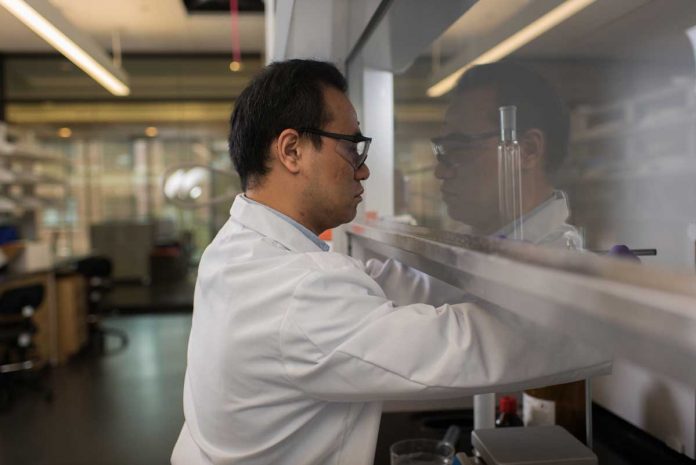Oregon State University researchers have designed a catalyst, which can produce hydrogen with better efficiency and lower cost than current commercial catalysts.
A catalyst helps to increases the rate of a chemical reaction but the catalyst keeps itself unchanged in the whole process.
To scientists, this finding is significant because the production of hydrogen fulfils many aspects of human life such as making fuel cells for cars and producing ammonia. Hydrogen is also used in refining metals and producing plastics.
Splitting water through an electrochemical catalyst is a much more clean and sustainable process to produce hydrogen than any other conventional process. A conventional process of producing hydrogen was to derive hydrogen from natural gas through a carbon-dioxide-producing process. This process is known as methane-steam reforming. But the cost of this process was too high.
The new research describes the ways to design catalysts to improve the efficiency of hydrogen production. The research paper has been published in Science Advances and JACS Au.
Sometimes a catalyst experiences structural changes when facilitating a research process. These changes can be reversible or irreversible. Irreversible changes are harmful for a catalyst’s stability. In irreversible changes, the reaction efficiency of the catalyst become less.
A team of researchers have studied the restructuring of catalysts in reaction. Then they manipulated the catalysts surface structure to produce a highly efficient catalytic process for making hydrogen.
A phase of a catalyst based on amorphous iridium hydroxide have 150 times of capability than its original perovskite structure to produce hydrogen. It also has three times better magnitude than commercial catalyst.
Researchers found two groups of materials that have irreversible change and these catalysts are better for hydrogen formation. This process also comes cheaper. Scientists can produce hydrogen at $2 per kilogram in the beginning and then it will be reduced to $1 per kilogram.

